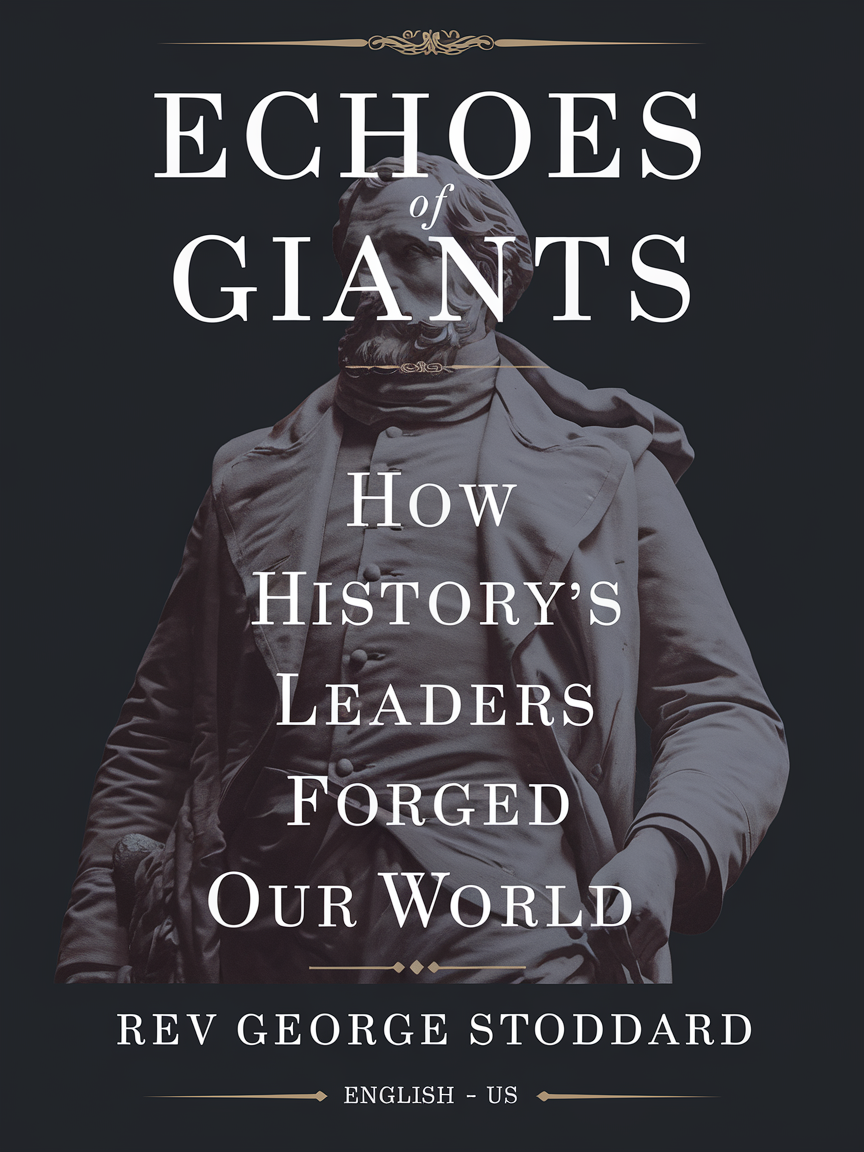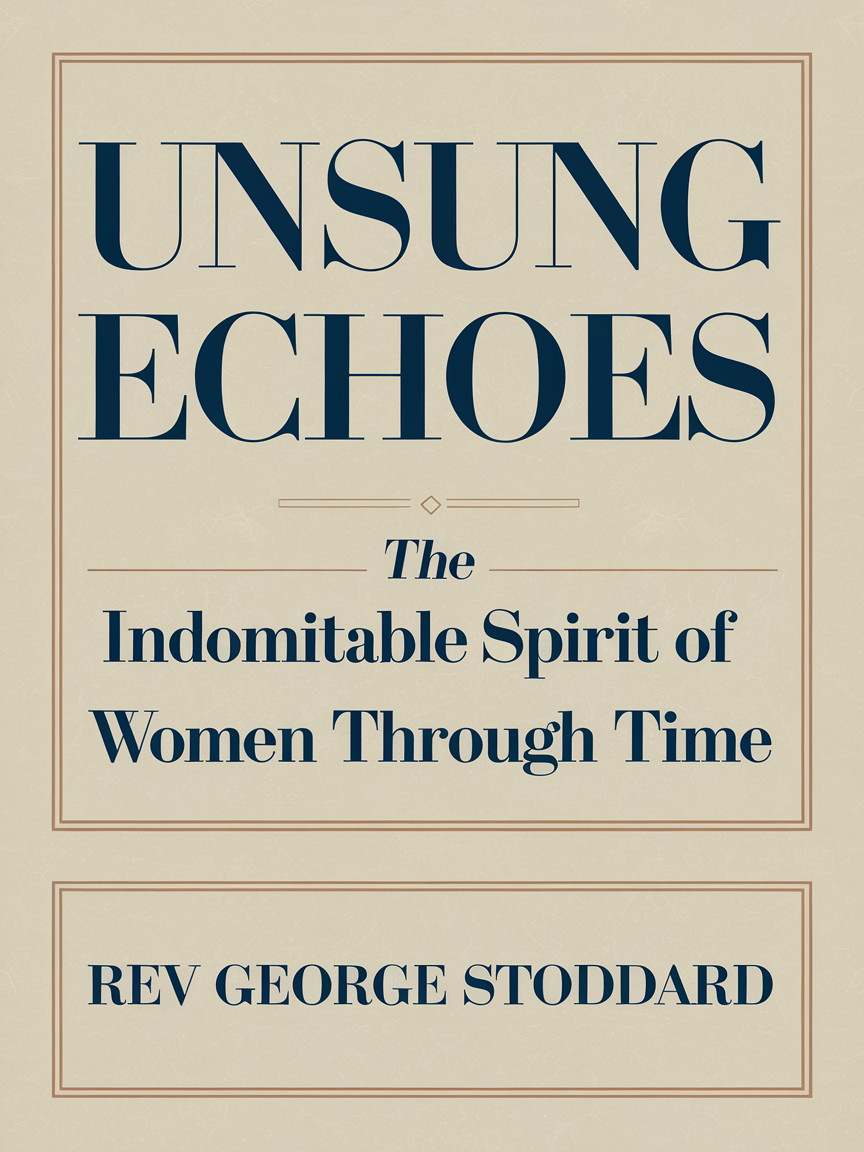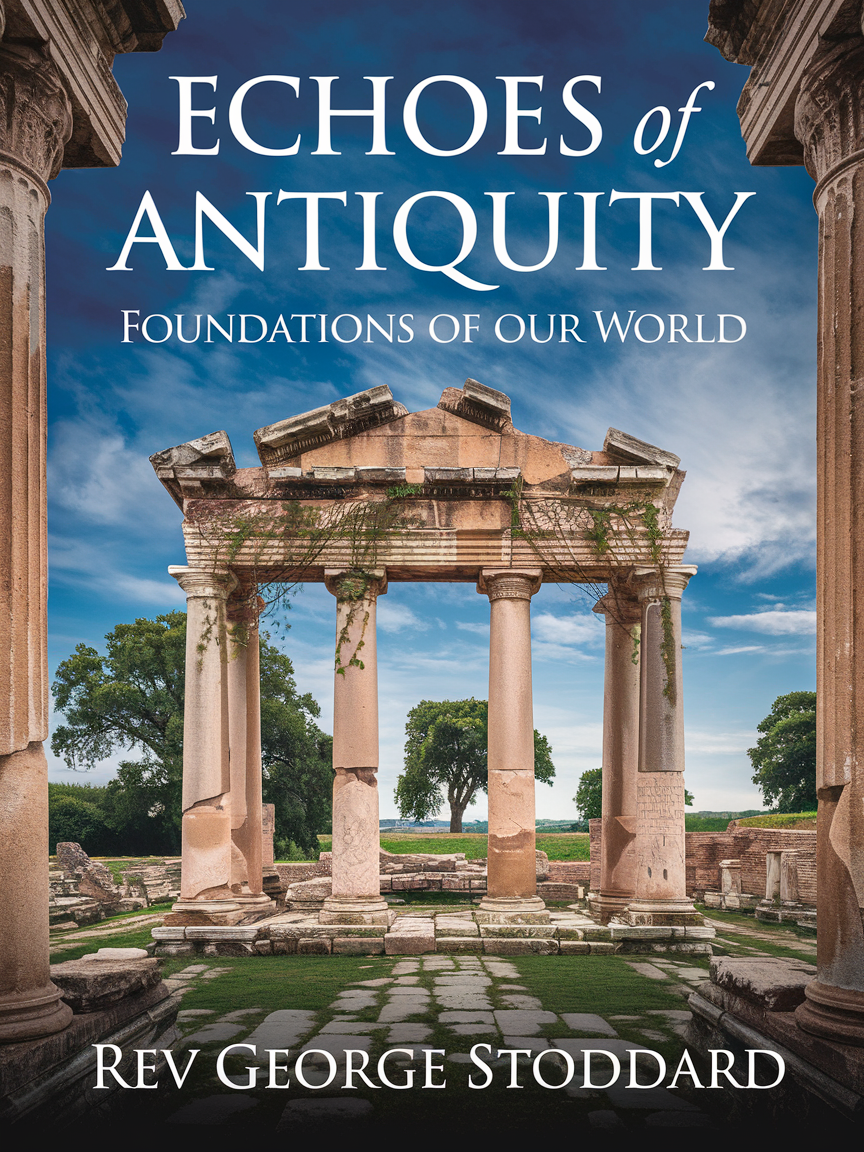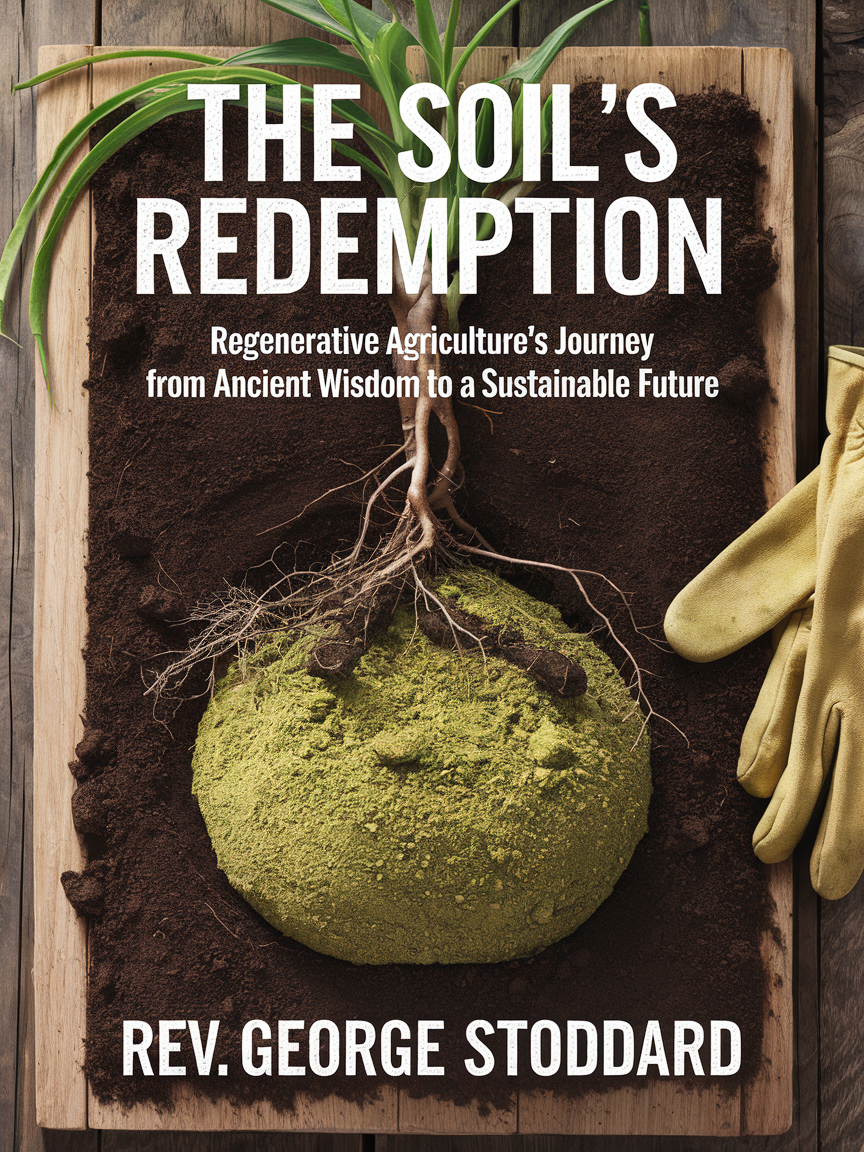Silicon Empires is a really compelling look at the fast-paced world of tech and the people who build it.
The story of the visionary's rise and fall was fascinating, though I sometimes wished for a bit more detail in certain sections.
Rev George Stoddard does a good job of showing the complex nature of the protagonist's ambition.
The exploration of the ethical dilemmas faced by the visionary was thought-provoking.
It made me think a lot about the human cost behind those massive digital innovations we take for granted.
I’d recommend this to anyone interested in biographies or the darker side of Silicon Valley success.
The writing was generally clear and easy to follow, keeping the narrative moving along.
While the protagonist was well-drawn, some of the supporting characters felt a little less developed.
Overall, it was a satisfying read that offered a lot to consider about ambition and integrity.
The pacing kept me engaged, especially as the stakes got higher in the latter half of the book.
Silicon Empires offers a solid exploration of ambition and its consequences, though it occasionally falters in its execution.
The narrative effectively traces the visionary's journey, but the pacing felt uneven in the middle sections, dragging in places.
While the author captures the intoxicating allure of Silicon Valley, the protagonist's internal struggles could have been fleshed out more deeply.
Rev George Stoddard's prose is generally clear and accessible, making complex technological advancements understandable.
The book delivers a compelling cautionary tale, but the ending felt somewhat abrupt, leaving a few threads unresolved.
It's a worthwhile read for those interested in the human side of tech innovation, though it doesn't quite reach the heights it aims for.
"Silicon Empires" offered a compelling, if at times unsettling, look into the complex life of a tech visionary.
I found the detailed exploration of the visionary's rise, from humble beginnings to digital titan, incredibly engaging.
While the book expertly captured the intoxicating allure of Silicon Valley, some sections felt a bit rushed in detailing the eventual downfall.
Rev George Stoddard’s prose is clear and evocative, painting a vivid picture of both innovation and its human cost.
The examination of ethical compromises and unchecked ambition provided much food for thought regarding leadership in the digital age.
I appreciated the balanced perspective on the genius and the flaws of the central figure, making them feel very real.
The narrative skillfully navigates the rapid advancements and fierce competition that defined their era.
It's a powerful cautionary tale, though I wished for a bit more depth in the final act of their ruin.
This biography is a thought-provoking read for anyone interested in the human element behind technological progress.
I'd recommend it to those who enjoy well-researched biographies that don't shy away from difficult truths.
Giants of Disruption truly delivered an inspiring look at some incredibly impactful figures.
The book did a great job of weaving together individual stories to show a broader economic narrative.
I found the exploration of their early struggles and moments of inspiration particularly compelling.
Rev. Stoddard's writing felt both accessible and insightful throughout the biographical accounts.
It was a pleasure to read and offered practical lessons for anyone interested in business or innovation.
The author’s journalistic approach brought the journeys of these entrepreneurs to life.
I especially appreciated learning about the resilience required to overcome significant obstacles.
This book is a fantastic resource for understanding how ambition can truly reshape the world.
The detailed accounts of each "giant" made them feel like more than just historical footnotes.
It’s a highly recommended read for those who enjoy learning about transformative lives.
Giants of Disruption offers a compelling, if occasionally uneven, look at transformative figures in economic history.
The chronological progression from industrial titans to digital innovators provides a solid narrative framework for these biographies.
While the entrepreneurial journeys are inherently fascinating, some profiles felt more fleshed out than others, impacting overall pacing.
Author Rev George Stoddard effectively captures the spirit of innovation and resilience inherent in each disruptor.
The analysis of their formative years and pivotal moments provides valuable context for their groundbreaking achievements.
Readers will undoubtedly glean practical wisdom on strategy and tenacity from these detailed accounts.
However, a deeper dive into the broader societal impact of some disruptions would have been beneficial.
The journalistic approach is evident, presenting historical facts with an inspirational, though sometimes repetitive, tone.
Ultimately, this collection serves as a good source of motivation for those interested in business and innovation.
While not every story lands with equal impact, the collective lessons are undeniably powerful.
The book's strength lies in its accessibility and its celebration of audacious human ambition.
I found myself reflecting on the consistent thread of vision and grit that connects these varied giants.
Rev. George Stoddard's "The Unfolding Light" offered a really engaging sweep of democratic history.
The journey from ancient origins to modern complexities was thoughtfully laid out, though some sections felt a bit rushed.
I appreciated the author's accessible writing style, which made complex ideas understandable for an everyday reader.
The book excels at highlighting the core philosophical debates and the persistent human drive for self-governance.
It definitely gave me a fresh perspective on the enduring quest for freedom and justice across different eras.
I found the parallels drawn between historical struggles and contemporary challenges to be particularly insightful.
While the narrative was mostly compelling, a little more depth in the exploration of certain non-Western democratic movements would have been welcome.
Overall, it's a solid book that manages to be both informative and inspiring without being overly preachy.
It’s a great read for anyone curious about how the idea of democracy has evolved over time and what lessons we can glean from it.
This book makes a good case for why understanding our past is so crucial for shaping a better future.
Giants of Disruption is an ambitious undertaking that sheds light on some truly pivotal figures in economic history.
The book attempts to cover a vast sweep of time, which at times made the narrative feel a little rushed.
I appreciated the author's effort to connect these disparate biographies to contemporary business challenges.
Stoddard's prose is clear and accessible, making complex industrial shifts easy to grasp for the most part.
However, some of the individuals felt more fleshed out than others, leading to an uneven reading experience.
The lessons on resilience and innovation are indeed present, though perhaps not as deeply explored as I had hoped.
For those interested in the broader strokes of economic transformation, this book offers a good starting point.
It's a worthwhile read for its insights, even if it doesn't always achieve perfect narrative flow.
I found myself wanting more in-depth analysis of the psychological drivers behind these "giants."
Ultimately, it's a solid collection of stories that serves its purpose of inspiring future entrepreneurs.
Rev. George Stoddard's "The Unfolding Light" offers a truly comprehensive and thought-provoking exploration of democracy's long and often winding path.
The narrative skillfully navigates vast historical periods, though occasionally the sheer scope leads to a feeling of being rushed through certain crucial eras.
Stoddard effectively draws parallels between historical democratic movements and the enduring human spirit, making the abstract concept feel tangible.
His journalistic approach lends a clarity and accessibility to complex philosophical ideas, making them digestible for a broad audience.
I found myself deeply reflecting on the cyclical nature of democratic progress and the constant struggle for its preservation.
The book's strength lies in its ability to inspire hope by showcasing humanity's persistent desire for self-determination.
While the exploration of ancient roots was particularly compelling, I wished for a deeper dive into the nuances of modern democratic challenges.
Overall, this is an important work that illuminates the enduring quest for freedom and justice across time.
It is a valuable resource for anyone seeking to understand the historical underpinnings of the governance we have today.
I would recommend it to readers interested in a broad historical survey with an inspirational undertone.
The book manages to feel both academic and deeply personal in its outlook.
It succeeds in framing democracy not as a static achievement, but as a continuous, evolving journey.
"The Unfolding Light" is a truly captivating and illuminating read that offers a sweeping perspective on democracy's long arc.
Rev. Stoddard masterfully guides us from the earliest stirrings of self-governance to its intricate modern iterations.
The author's journalistic approach lends a tangible feel to the historical accounts, making them relatable and impactful.
I found the exploration of the philosophical bedrock of democracy, intertwined with its revolutionary struggles, to be particularly insightful.
The book’s ability to draw parallels between historical democratic pursuits and the enduring human spirit left a lasting impression on me.
It’s an essential read for anyone seeking a deeper understanding of our shared journey towards freedom and justice.
The narrative felt both comprehensive and remarkably accessible, a delicate balance few authors achieve.
I appreciated how the book highlighted both the triumphs and the tribulations inherent in democracy's evolution.
This work serves as a powerful reminder of humanity's persistent yearning for a voice in shaping its own destiny.
Rev. Stoddard's profound insights offer a much-needed beacon of hope for the future of governance.
It's a book that inspires reflection and conversation about the ongoing quest for a more equitable world.
Echoes of Antiquity is a really enjoyable read that connects our present to the ancient past beautifully.
I found the way Rev Stoddard wove together the advancements of different civilizations, like Greece and Rome, to be quite insightful.
The writing style is accessible and makes complex historical ideas easy to grasp for someone who reads for pleasure.
It truly highlighted how much we owe to ancient thinkers and builders for the foundations of our world today.
The book left me with a renewed appreciation for human ingenuity across millennia.
I'd definitely recommend this to anyone curious about how history shaped our lives.
This book offered such a thorough and engaging look at regenerative agriculture's past and present.
Rev. Stoddard really brought to life how ancient practices paved the way for modern solutions.
I especially appreciated how the author connected farming techniques to societal shifts throughout history.
The writing felt both informative and inspiring, making a complex topic accessible for an everyday reader.
It definitely made me think about the food I eat and how it's produced.
I learned a lot about the philosophy behind working with nature, not against it.
The book successfully portrays regenerative agriculture as a vital path for environmental healing.
I would recommend "The Soil's Redemption" to anyone interested in sustainability and history.
Rev George Stoddard's "Forging Tomorrow" offers a solid overview of the Industrial Revolution's transformative impact.
The book effectively traces the technological advancements and societal shifts from the late 18th to mid-19th century.
Stoddard presents a narrative that balances the ingenuity of inventors with the struggles faced by workers, though some of these struggles could have been explored in greater depth.
The writing is clear and accessible, making complex historical processes understandable for the everyday reader.
I particularly appreciated the connections drawn between historical innovations and their lasting influence on our modern world.
While the book provides a good foundation, I found myself wishing for a bit more granular detail in certain areas of economic impact.
The exploration of new social classes was insightful, providing a good framework for understanding the era's changes.
Overall, it's a well-structured and informative read that successfully conveys the magnitude of the Industrial Revolution.
This is a book I would recommend to anyone interested in understanding the roots of contemporary society.
It serves as an excellent starting point for exploring this pivotal period in human history.
Rev. George Stoddard's "Echoes of Antiquity" offers a comprehensive and insightful journey into the foundational achievements of ancient civilizations.
The narrative skillfully weaves together the governmental innovations of Greece, the engineering prowess of Rome, and the intellectual systems of Egypt and Mesopotamia, providing a clear understanding of their impact.
Stoddard's prose is accessible yet academic, making complex historical concepts digestible for a broad audience.
The book effectively highlights how these ancient societies grappled with fundamental questions of existence and societal organization, demonstrating the enduring relevance of their thought.
I found the exploration of how ancient wisdom continues to inform modern human potential particularly compelling.
This work serves as an excellent reminder of the continuity of human ingenuity across millennia.
The author successfully illustrates the intellectual and cultural bedrock upon which our world is built.
The pacing is consistent, allowing for a thorough exploration of each civilization's contributions without feeling rushed.
While the focus is on broader societal achievements rather than individual characters, the collective spirit of innovation is powerfully conveyed.
The book's strength lies in its ability to connect the past to the present, offering valuable lessons for navigating our future.
I thoroughly enjoyed how the author illuminated the profound and lasting contributions of these early societies.
I would highly recommend "Echoes of Antiquity" to anyone interested in understanding the deep roots of modern civilization.
Rev George Stoddard's "Unsung Architects" is a deeply rewarding read that truly shines a light on historical injustices.
The book effectively brings to life the crucial yet often forgotten roles women played in shaping our world.
Stoddard's journalistic approach makes these complex stories accessible and engaging for any reader.
I particularly appreciated the diverse range of women highlighted, spanning different fields and time periods.
It was inspiring to learn about figures whose contributions were historically minimized or erased.
The narrative successfully conveys the resilience and intelligence of these pioneering women.
This book made me rethink how history is presented and encourages a more inclusive perspective.
It's a powerful reminder that significant achievements often come from unexpected places and people.
I highly recommend this book to anyone interested in history or looking for a dose of inspiration.
It’s a book that stays with you, prompting reflection on the broader tapestry of human achievement.
The Soil's Redemption offers a broad historical overview of regenerative agriculture with varying degrees of success.
While the book traces the evolution of practices from ancient times to the present, some transitions felt abrupt rather than flowing smoothly.
The exploration of philosophical roots was insightful, but the narrative often lacked the engaging depth one might expect from a journalistic approach.
Stoddard's attempt to connect past wisdom with future solutions is admirable, though the socio-economic impacts felt somewhat generalized.
I learned about the interconnectedness of farming and ecological health, but the "call to action" aspect was more stated than truly inspiring.
The author successfully highlights the potential of regenerative agriculture, yet the book could benefit from more nuanced case studies.
For readers new to the subject, this provides a foundational understanding of regenerative farming's historical trajectory.
However, those seeking a deeply analytical historical account may find it falls short of rigorous academic standards.
The writing is clear, but at times it leans towards being overly simplistic, which can detract from the seriousness of the topic.
Ultimately, the book serves as a decent introduction, but doesn't quite achieve its ambitious goal of providing profound inspiration or detailed historical analysis.
I appreciated the thematic coherence, but the execution of certain historical connections was less convincing than others.
The book succeeds in raising awareness for regenerative agriculture, but its historical narrative could have been more robustly supported with specific evidence.
Rev. George Stoddard’s "Echoes of Antiquity" truly made me appreciate how much we owe to the past.
I was especially struck by how he connected Mesopotamian governance to our modern legal systems.
The book’s journalistic style made complex historical ideas feel accessible and engaging.
It clearly illustrates the lasting impact of ancient philosophy on our ethical frameworks.
I learned so much about the interconnectedness of cultures throughout history.
This is a genuinely insightful read for anyone curious about the foundations of our world.
It’s inspiring to see how ancient ingenuity continues to shape our lives today.
The author does a wonderful job of bringing these ancient civilizations to life for a modern reader.
I particularly enjoyed the sections on Roman engineering and Egyptian scientific advancements.
The book offers a compelling narrative that’s both educational and enjoyable.
It encouraged a deeper reflection on the continuity of human achievement across millennia.
I would highly recommend this book to anyone interested in history or the origins of civilization.
Echoes of Empire really made me think about history in a new light.
I found the way Stoddard presented both sides of the colonial story quite impactful.
The writing felt very accessible, like a skilled journalist was guiding me through complex events.
I appreciated how the book highlighted the struggles and triumphs of those who were colonized.
It definitely gave me a deeper understanding of how the past still shapes our world today.
While I enjoyed the broad scope, I sometimes wished for a bit more depth in specific case studies.
However, the overall message of seeking justice and reconciliation came through strongly.
I would recommend this book to anyone interested in understanding global history better.
It's a thought-provoking read that encourages empathy and critical thinking.
"Forging Tomorrow: The Industrial Revolution's Enduring Legacy" provides a solid overview of a crucial historical period.
The book effectively traces the progression of key inventions and their societal ripple effects, though some sections felt a bit rushed in covering the mid-19th century shifts.
Stoddard captures the dual narrative of innovation and worker hardship quite well, though the "rise of new social classes" theme could have been explored with slightly more nuance.
The writing is generally clear and accessible, making complex technological and economic changes understandable for a broad audience.
While the narrative celebrates human ingenuity, I wished for a deeper dive into the personal accounts of those impacted by the revolution's harsh realities.
It's a good starting point for those interested in the Industrial Revolution's foundational impacts on our world.
The thematic exploration of progress and its consequences is handled competently, offering a balanced perspective.
I appreciated the emphasis on how these historical changes directly inform our present circumstances.
However, more detailed case studies or biographical sketches could have added a greater emotional resonance.
Overall, it's a well-researched and informative work that succeeds in its aim to illuminate the Industrial Revolution's lasting influence.
It's a commendable effort in making this transformative era accessible and relevant to contemporary readers.
I would recommend this book to anyone seeking a foundational understanding of the forces that shaped modernity.
This book is a truly illuminating journey through the foundational achievements of ancient civilizations.
Rev. Stoddard masterfully connects the past to our present, demonstrating how ancient innovations continue to influence us.
The writing is clear and accessible, making complex ideas about governance and philosophy easy to grasp.
I particularly appreciated the exploration of how ancient Greeks and Romans shaped our world, from democracy to engineering.
The book leaves you with a profound sense of connection to our ancestors and their enduring wisdom.
It's an inspirational read that reminds us of the power of human ingenuity throughout history.
I wholeheartedly recommend this book to anyone curious about the roots of our modern society.
It sparked a deep sense of awe for the intellectual and cultural bedrock laid by early peoples.
The way the author weaves together achievements in science, art, and philosophy is exceptional.
This book is a powerful reminder that understanding our past is vital for shaping a better future.
It truly made me feel the echoes of antiquity resonating in our daily lives.
Rev George Stoddard's "Unsung Architects: Women Who Built Our World" is a genuinely illuminating and important historical collection.
The book successfully unearths a multitude of forgotten female figures whose influence demonstrably shaped significant events and discoveries.
Stoddard's journalistic approach makes these often complex histories accessible and engaging for a broad audience.
The exploration of themes like resilience and challenging societal norms resonated deeply, highlighting the pervasive impact of women's contributions.
I particularly appreciated the focus on diverse eras and cultures, providing a comprehensive view of these historical narratives.
While the breadth of stories is impressive, a deeper dive into a few select individuals might have offered even more profound emotional resonance.
The accessible writing style makes this an excellent read for anyone interested in a more complete understanding of history.
It truly does serve as a powerful reminder of the strength and intelligence of female pioneers across time.
I found myself reflecting on how many more stories might remain hidden in plain sight.
This book is a valuable addition to any history enthusiast's library, especially those eager to uncover overlooked narratives.
The book is a testament to collective, often unacknowledged, human achievement that deserves wider recognition.
4.5/5
Rev. George Stoddard's "The Soil's Redemption" offers an earnest exploration of regenerative agriculture's historical roots and its potential for a sustainable future.
The book effectively traces the evolution of farming practices from ancient societies to contemporary movements, though some historical periods felt a bit rushed.
While not a character-driven narrative, the work's strength lies in presenting the recurring principles and innovations that define regenerative agriculture.
Stoddard's prose is informative and accessible, framing complex ecological and agricultural concepts in a way that encourages understanding.
I appreciated the detailed examination of the socio-economic impacts and philosophical underpinnings of these farming methods.
The concluding sections strongly advocate for the adoption of regenerative practices, functioning as a persuasive call to action.
However, the journalistic lens sometimes leaned towards advocacy, occasionally overshadowing deeper historical analysis.
The transition between historical context and modern applications could have been smoother for a more integrated reading experience.
Overall, it provides a solid foundation for understanding the historical significance and future promise of regenerative agriculture.
I would recommend this to readers interested in environmental history and sustainable food systems, with the caveat that it is more educational than deeply narrative.
Echoes of Strength is a truly inspiring collection of stories that brought so many forgotten women to light.
I appreciated how the book covered women across different eras and fields, from science to social progress.
The writing style felt very accessible, making it easy to dive into each narrative without feeling overwhelmed.
It was powerful to see how resilience and innovation were common threads throughout these women's lives.
This book really made me think about the hidden contributions that have shaped our world.
I learned so much about individuals I had never encountered before in my reading.
The author did a great job of highlighting the "often-overlooked facets of their lives and legacies."
It’s a perfect read for anyone looking for empowering historical accounts.
I felt a real sense of connection to these women and their journeys.
This book definitely made me feel like I found my own echo of strength.
It’s a must-read for understanding the full tapestry of history.
I would highly recommend this to anyone interested in history and personal growth.
Rev George Stoddard's "Echoes of Antiquity" offers a compelling and insightful journey through the foundational moments of human civilization.
The book excels at weaving together the disparate threads of ancient societies, demonstrating their interconnectedness and lasting impact on our present.
Stoddard's journalistic style makes complex historical concepts accessible and engaging, drawing the reader into the narrative with clarity.
The exploration of how ancient innovations in law, philosophy, and science continue to shape our modern lives is particularly well-executed.
I appreciated the book's ability to move beyond dry facts to reveal the "living spirit" of these cultures.
The author successfully illustrates how ancient achievements are not just historical footnotes but vital components of our ongoing human story.
The thematic depth, covering governance from Mesopotamia to ethics from Greece, provides a rich tapestry of understanding.
"Echoes of Antiquity" is an inspirational read that fosters a profound appreciation for our shared past.
This work is highly recommended for anyone interested in understanding the roots of our contemporary world.
Echoes of Empire provides a compelling, though at times uneven, global perspective on colonialism's lasting impacts.
Rev. Stoddard effectively presents the intricate power dynamics, though some case studies felt less developed than others.
The journalistic approach lends an accessible quality, but occasionally sacrifices deeper academic nuance.
The exploration of resistance and resilience is a definite strength, fostering empathy for the colonized.
I appreciated the book's effort to connect historical colonialism to contemporary global inequalities.
While the narrative is generally clear, a more rigorous citation system would have strengthened its scholarly appeal.
The book successfully prompts a necessary reckoning with our shared colonial past.
It is a valuable read for those new to the subject or seeking a broad overview of colonial legacies.
Some readers might find the balance between inspiration and critique to be slightly off-kilter.
The author’s intention to foster understanding and reconciliation shines through the work.
Overall, it’s a thoughtful contribution that encourages important conversations about history.
This book offers a significant, if not entirely flawless, examination of its complex subject matter.
"Forging Tomorrow: The Industrial Revolution's Enduring Legacy" offered a solid overview of a truly world-changing period.
The book successfully charts the technological advancements and their societal ripple effects, though I felt the exploration of worker struggles could have been more nuanced.
Rev George Stoddard's writing is clear and accessible, making complex historical shifts understandable for a general audience.
The focus on inventors and the rise of new social classes provided valuable insight into the era's transformations.
I appreciated learning about the long-term impacts that continue to shape our modern lives even if the emotional connection to the human stories felt somewhat distant.
It's a good foundational read for anyone wanting a comprehensive look at the Industrial Revolution's lasting influence.
While generally well-written, the narrative sometimes leaned towards a more descriptive than analytical approach.
The book effectively highlights the ingenuity and the broad strokes of change.
It could have benefited from more in-depth case studies of individual experiences to add greater emotional resonance.
For those seeking a broad understanding of this pivotal historical era, "Forging Tomorrow" serves its purpose.
"The Woven Truth" offers a really interesting look into the history of the African Net Sponge.
Rev. Stoddard does a good job of tracing its journey and showing its importance beyond just being a tool.
The writing is clear and accessible, making it easy for a casual reader like me to follow along.
I appreciated learning about the craftsmanship and the cultural narratives connected to the sponge.
It made me think about how everyday objects have deeper stories to tell.
While I enjoyed the book, I felt some sections could have been a bit more detailed to truly unearth all the legacy.
Still, it's a worthwhile read for anyone curious about overlooked aspects of history.
I would recommend it to people who enjoy discovering hidden connections in the world around them.
"Unsung Architects" truly impressed me with its dedication to unearthing forgotten female contributions to history.
The journalistic approach makes the diverse stories accessible and engaging, bringing these pivotal figures to life.
Rev. George Stoddard masterfully weaves together narratives of quiet strategists and overlooked scientists, showcasing their profound impact.
I particularly appreciated how the book highlights resilience and the constant challenging of the status quo by these women.
It's a powerful and inspiring read, serving as a crucial reminder of the collective, often unacknowledged, efforts that shape our world.
While some stories could have benefited from deeper dives, the overall breadth of coverage is commendable.
This book is an important contribution to historical discourse, urging us to celebrate the full spectrum of human achievement.
It’s a book that resonated deeply with me and one I'll be recommending to many.
"Echoes of Strength" offers a valuable collection of women's histories that truly resonate.
The journalistic exploration effectively brings to light numerous influential figures often relegated to the footnotes of history.
Rev. Stoddard's prose is engaging, making these complex lives accessible and compelling for a wide audience.
While the thematic focus on resilience and impact is consistently strong, the narrative occasionally feels a bit generalized across diverse historical periods.
I appreciated the book's intent to empower and connect women to their past contributions, though a deeper dive into the *how* of their influence in certain chapters would have been beneficial.
The overall presentation serves its purpose of celebrating overlooked achievements and inspiring readers.
Rev. Stoddard has truly captured the essence of how ancient civilizations continue to shape our world.
The book masterfully illustrates the threads connecting Mesopotamia's governance to Greece's philosophy and Rome's engineering.
I found the journalistic style incredibly engaging, making complex historical connections feel accessible and vibrant.
The exploration of themes like law, democracy, and ethics felt particularly profound and resonated deeply.
It's inspiring to see how the scientific inquiries of Egypt are presented as foundational to modern understanding.
This book made me deeply appreciate the ingenuity and foresight of our ancient ancestors.
It's a testament to their enduring legacy that their wisdom still guides us today.
I wholeheartedly recommend "Echoes of Antiquity" to anyone curious about the roots of our modern existence.
Rev George Stoddard's "Echoes of Empire" offers a truly compelling and important examination of colonialism's global reach.
The book masterfully navigates the complex narratives of both colonizers and the colonized, making the intricate power dynamics incredibly clear.
Stoddard's journalistic approach brings a vibrant and accessible quality to the dense historical material presented.
The exploration of resilience and resistance from colonized peoples is particularly inspiring, providing a much-needed counterpoint to traditional historical accounts.
I found myself gaining a much deeper understanding of the historical roots of contemporary global inequalities.
While the scope is vast, a more in-depth case study in a few sections might have further solidified the argument.
Overall, this is a profoundly moving and thought-provoking read that I would highly recommend to anyone interested in history.
It is a vital resource for comprehending our shared past and the ongoing pursuit of justice.
Rev. George Stoddard's "The Woven Truth" offers a deeply insightful and unexpectedly profound exploration of the African Net Sponge.
The author skillfully traces the artifact's lineage, weaving together its practical utility with its rich cultural and spiritual significance.
Stoddard's journalistic approach lends an air of authenticity, though at times the narrative's historical depth could have been further augmented.
The book excels at highlighting the ingenuity and resilience embedded within this seemingly simple object.
I found myself reflecting on the overlooked histories present in everyday items, a testament to the book's success in shifting perspective.
The exploration of societal roles and intricate artistry surrounding the net sponge was particularly compelling.
Stoddard’s prose is engaging, making complex historical threads accessible and relatable to a broad audience.
This work is a valuable contribution to understanding the depth of African cultural heritage through an object's enduring legacy.
It’s a reminder of the powerful stories held within the most humble of creations.
The book inspires a closer look at the world, revealing hidden layers of meaning.
I thoroughly enjoyed this illuminating and thoughtfully researched account.
"The Woven Truth" is a highly recommended read for anyone interested in history, culture, or simply appreciating the profound impact of everyday objects.
"Echoes of Strength" is an absolutely essential read for anyone interested in uncovering the full tapestry of history.
Rev. George Stoddard has masterfully brought to light the vital contributions of women often relegated to footnotes, making their stories feel vibrant and present.
The narrative flows beautifully, making complex historical periods and impactful lives accessible and deeply engaging.
Each woman featured, from ancient scholars to modern activists, feels remarkably developed, showcasing their resilience against formidable odds.
The author’s journalistic approach lends an authenticity that truly resonates, making the book both informative and incredibly inspiring.
It's a powerful reminder of the strength within shared female experiences and a potent call to acknowledge these legacies.
I particularly appreciated the chapters on the unsung heroines in science and social progress.
This book truly makes you reconsider the narratives you grew up with and how much has been overlooked.
The writing is clear and evocative, allowing the power of each story to shine through without unnecessary embellishment.
I felt a profound connection to these women and left with a renewed sense of appreciation for their impact.
"Echoes of Strength" is a book that will empower and enlighten readers, offering a more complete and richer understanding of our past.
"The Woven Truth" offers a truly captivating historical account of the African Net Sponge.
Rev. Stoddard masterfully traces the object's journey, revealing its profound significance.
The narrative weaves together intricate artistry, societal roles, and deep cultural relevance.
I was particularly struck by the detailed exploration of the sponge's communal importance.
The writing style is both accessible and deeply informative, making complex history engaging.
It is a testament to how everyday objects hold extraordinary stories.
This book truly changed how I view historical artifacts and their embedded wisdom.
I learned so much about resilience and ingenuity through this unique lens.
The author successfully demonstrates the sponge's enduring legacy and practical purpose.
This is a history book that will resonate with readers long after the final page.
I wholeheartedly recommend "The Woven Truth" to anyone interested in cultural history.










